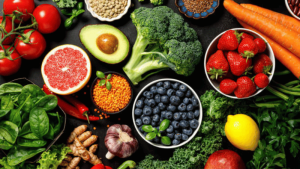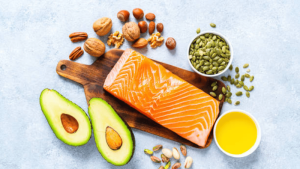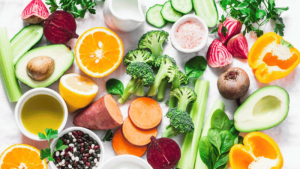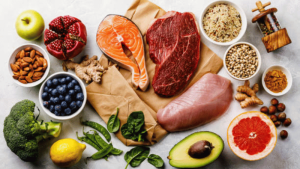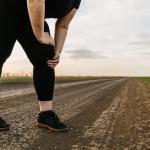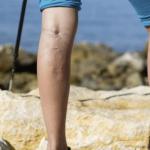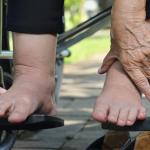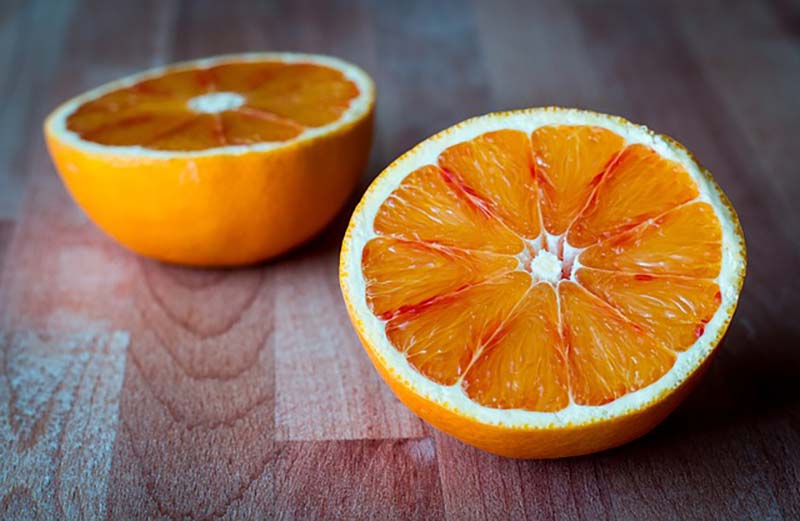
Increasing vitamin intake through diet or supplements can significantly enhance blood circulation and vein health, helping to manage conditions like varicose veins and reducing the risk of vascular issues such as blood clots and poor circulation.¹ These vitamins can strengthen blood vessel walls, reduce vein inflammation, and even encourage repair at the cellular level.
So, what are the best vitamins for veins?
This article explains why healthy veins are important and provides a list of vitamins you can add to your diet to promote vein health.
Stay Ahead of Your Health – Sign Up for Our Newsletter
Understanding Vein Health
Veins are blood vessels that carry blood back to the heart. They are vital in keeping tissue and organs fueled with oxygen-rich blood.
They do this by sending deoxygenated blood back to the lungs to ‘refuel’ with oxygen, then to the heart, which pumps oxygen and nutrient-rich blood throughout the body.
Veins have three layers:
- An outer layer that provides structure
- A middle layer of smooth muscle cells that makes veins flexible
- An inner layer of smooth endothelial cells that allow blood to flow freely
Veins also have one-way valves, ensuring blood moves back to the heart in one direction.
When the layers of the vein walls or the valves become damaged — which happens for several reasons, including inflammation, high blood pressure, and simply wear and tear from aging — they can’t function properly.
This is particularly common with leg veins, which have the important but difficult job of pumping blood upward against gravity. More pressure and stress are on these veins, so they become damaged more easily than the blood vessels in other body parts.
Vein damage in the legs leads to common vein health issues, like varicose veins and chronic venous insufficiency or vein disease.
Vitamins and a healthy diet can help by supporting the vein walls and valves so they can do their jobs. Vitamins can’t reverse varicose veins or vein disease—treatment is the only way to resolve these vein health conditions—but they can help improve vein health.
The following sections will provide an in-depth analysis of each vitamin critical to supporting vein health. These vitamins will be explored for their specific benefits to veins, their contributions to maintaining the integrity of vein walls and valves, and their roles in preventing common vein-related conditions. This will provide insights on integrating these essential nutrients into a daily regimen through diet or supplementation, enhancing your understanding of their importance for vein health.
Vitamin C: The Vein Strengthening Agent
Vitamin C promotes blood circulation and the healing of vein membranes. It also keeps the walls of veins strong by helping the body produce collagen and other connective fibers that make up the outer layer of these blood vessels.
Vitamin C can be obtained from fruits, vegetables, and supplements. The recommended daily amount of Vitamin C is 75 mg (milligrams) for women and 90 mg for men.
Good sources of Vitamin C:
- Chili peppers
- Guavas
- Sweet yellow peppers
- Kale
- Kiwi
- Broccoli
- Brussels sprouts
- Lemons
- Strawberries
- Oranges
Vitamin E: Antioxidant Protection for Veins
This essential vitamin is a powerful antioxidant that protects healthy blood cells by neutralizing free radicals. Free radicals are unstable molecules that can damage cells, leading to various health issues. The antioxidant properties of this vitamin prevent such damage, ensuring that blood cells function properly. Additionally, this vitamin helps maintain smooth blood flow throughout your veins by preventing blood platelets from becoming overly sticky, which is crucial for avoiding blood clots.
Nuts, seeds, and fruits are great sources of Vitamin E to add to your diet. You can also take it in supplement form to promote vein health but always talk to your doctor before taking new supplements. Adults should get at least 15 mg of vitamin E daily.
Good sources of Vitamin E:
- Sunflower seeds
- Almonds
- Peanuts
- Salmon
- Avocado
- Trout
- Mango
- Brazil nuts
- Kiwi
Vitamin K: Promoting Healthy Blood Flow
Vitamin K keeps blood flowing properly. It keeps calcium out of arteries, where it could calcify and increase blood pressure, and helps blood clot properly.
In addition, vitamin K can also reduce inflammation and help bruised or broken capillaries heal faster.
You can get vitamin K from a balanced diet. Aim for both green veggies and eggs, dairy, and fermented foods like sauerkraut to get both types of vitamin K (vitamin K and vitamin K2). Men need about 90 mcg (micrograms) daily, and women require 120 mcg.
Good sources of Vitamin K:
- Kale
- Spinach
- Broccoli
- Brussels sprouts
- Chicken
- Green beans
- Eggs
- Kiwi
- Avocado
- Soft cheese
Vitamin B6: Balancing Homocysteine Levels
Vitamin B6 and B12 work together to eliminate excess homocysteine, an amino acid that can lead to blood clotting when built up too much. Adults under 50 should get 1.3 mg a day. The recommended daily intake for women over 50 is 1.5 mg, and it’s 1.7 for men.
Good sources of Vitamin B6:
- Beef liver
- Tuna
- Salmon
- Chickpeas
- Dark leafy greens
- Bananas
- Cantaloupe
As vitamin B6 works with vitamin B12, it’s important to maintain adequate levels of both nutrients. Vitamin B12 is found in tuna, beef, sardines, and dairy products. The average adult should aim for 2.4 mcg a day.
Vitamin D: Enhancing Vein Elasticity
Vitamin D is one of the best vitamins for blood flow. It reduces vascular inflammation, keeps the inner layer of your veins toned and flexible, and helps regulate blood pressure.
Low vitamin D levels can lead to inflammation and blood vessels, so get plenty of this nutrient. The recommended daily allowance is 15 mcg. Adults over 70 should get 20 mcg.
Vitamin D levels can be increased by just 15 minutes of natural sunlight three days a week. It’s also found in a balanced diet.
Good sources of Vitamin D:
- Egg yolks
- Mushrooms
- Fortified milk
- Tuna
- Mackerel
- Cheese
- Sweet potatoes
Other Nutrients and Tips for Optimal Vein Health
While vitamins are crucial for vein health, minerals such as magnesium, potassium, and copper are also vital. Additionally, maintaining proper hydration—about 2.7 liters of water for women and 3.7 for men daily—helps keep the blood flowing smoothly and supports overall vein health.
Regular exercise, such as walking, jogging, biking, and other activities, strengthens muscles that assist leg veins in pumping blood back to the heart. However, the most effective way to ensure the health of your veins is through regular check-ups with a vein specialist. They can screen for vein conditions and offer personalized recommendations to maintain optimal vein health.
For those experiencing symptoms or concerned about their vein health, USA Vein Clinics offers a range of minimally invasive treatment options. These state-of-the-art treatments provide relief with minimal discomfort and recovery time. Schedule a consultation at a USA Vein Clinics location near you to explore the best solutions tailored to your needs.
Sources
- Mph, Z. S., “Vitamins and supplements for circulation,” Medical News Today, November 10, 2023.
Medically Reviewed By:
Dr. Yan Katsnelson is a philanthropist, business owner, and highly skilled cardiac surgeon. He is the Founder and CEO of USA Vein Clinics, which is part of USA Clinics Group, the parent company of USA Fibroid Centers, USA Vascular Centers, and USA Oncology Centers, with more than 100 facilities nationwide. Dr. Yan has established himself as a strong advocate for accessibility and affordability of the most advanced medical care close to home. His mission is to create a positive experience for each patient with compassionate, personalized, and expert care.

